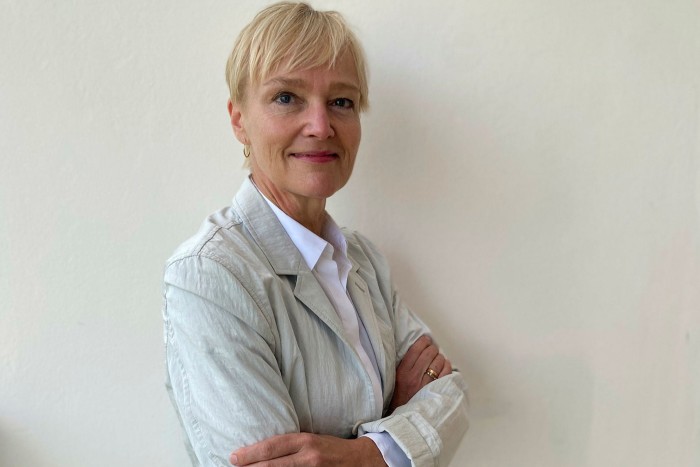In the course of the first year of their MBA at the University of Pretoria’s Gordon Institute of Business enterprise Science (GIBS) in South Africa, students are essential to operate with nearby non-financial gain organisations on group tasks that deal with social difficulties.
“In the earlier, our aim was on driving competitiveness. Now it’s about liable administration education and learning,” suggests Morris Mthombeni, interim dean at the university. “The mining, production and economical services companies search to us to make folks with the language, aptitudes and trade-offs you have to make among the foreseeable future and the current.”
In the latest years, there has been a surge in consideration in organization faculties about environmental, social and governance (ESG) concerns. This has mirrored shifting attitudes among students, faculty and employers who have moved beyond a standard aim on maximising money returns for shareholders in direction of benefiting a broader assortment of stakeholders.
GIBS, for illustration, is one particular of a lot more than 800 colleges to indicator up to the Rules for Responsible Management Education and learning (PRME). This initiative, supported by the UN, aims to endorse the teaching of sustainability in small business and management universities so that graduates have the expertise to equilibrium economic expansion with wider aims these as the Sustainable Growth Ambitions (SDGs) and weather modify.
But irrespective of the greater attention, academic leaders face tricky troubles including how to determine and prioritise the disparate abilities and values related with ESG how to combine them into training, analysis and operations and the extent to which a failure to do so will undermine the long term of business instruction.
Dependable enterprise is now a central concern for deans, in accordance to Mette Morsing, head of PRME and a professor at Copenhagen Organization University and the Stockholm University of Economics. “Twenty several years in the past, I was advised it was just a fad that would go absent. Right now desire has long gone from the periphery to the mainstream,” she states, introducing that some more enthusiastic school customers question why development in just small business educational facilities has been “so gradual.”
ESG concerns have prolonged been crucial for business enterprise educational institutions in Scandinavia and the Netherlands, reflecting their egalitarian traditions and environmental priorities. But now, quite a few business enterprise universities have launched electives, integrated ESG concerns into their main programs, opened specialist exploration centres and even founded standalone administration masters’ programmes on subject areas this kind of as sustainability and the round economic climate.
A lot of the existing momentum has been driven by a questioning of capitalism linked to inequality and globalisation after the 2008 economical crisis, escalating evidence of human-pushed climate transform and a reflection on purpose, highlighted by the Good Resignation throughout the Covid-19 pandemic.
Business enterprise faculties are now starting to choose collective action. At the COP26 local weather summit in Glasgow previous November, 8 of the major — and normally fiercely aggressive — European institutions joined forces to start Organization Educational facilities for Local weather Management. The intention is to market extra joint exploration on local weather change, make improvements to instructing and strengthen outreach to workers, learners and alumni.
Networks of teachers are also mobilising, for illustration creating communities close to liable business enterprise investigation and effect investing and sustainable finance teaching. Intercontinental accreditation frameworks which include Equis, AACSB and AMBA have expectations close to the societal impression of business colleges.
College students are also demanding adjust, and some concern whether or not business enterprise universities are going fast more than enough. “A bulk of the educational facilities still are missing a ton of movement,” states Sophie Charrois, president of oikos Global, a network of college student teams trying to find to transform economics and administration educating. “We need to have to integrate sustainability in a much more holistic way.”
Firms are also eager to see liable business taught in government schooling — if only so they can recruit this new technology of employees. Robert Strand, govt director of the Centre for Dependable Enterprise at Berkeley’s Haas company university, has noticed growing phone calls by employers for skills this sort of as evaluation of ESG factors.
The problem, he provides, is that the “faculty at most American small business schools . . . require to catch up.”
Business schools are making an attempt to adapt and attractiveness to students’ and recruiters’ needs to embrace social values, argues Jaime Bettcher, programme supervisor for the Aspen Institute’s Organization & Modern society Application. She cites a surge in programs for its annual “ideas really worth teaching” awards as evidence of their attempts.
“The war for talent will be waged in excess of which organisations can express a genuine genuine dedication to addressing social challenges,” she states. “For company schools to stay suitable, they’ll will need to redeploy their know-how on markets and organisations to handle a multitude of aims further than just financial acquire.”
Still there is disagreement and confusion about what constitutes dependable enterprise education. “The phrases ESG mean unique matters to different groups. We have to fully grasp how to measure it and keep people today accountable,” argues Professor Glenn Hubbard, previous dean of Columbia Enterprise Faculty.
“I’d say it is the look for for homo reciprocans: it is about collaboration, co-generation, partnering, empathy and sharing,” says Prof Morsing. “That’s in sharp contrast to homo economicus, which is all about attacking, battles and competitors.”
Colin Mayer, a professor of management who prospects the British Academy’s Long run of the Company inquiry, argues for additional purposeful enterprise that finds financially rewarding remedies to the complications of folks and planet.
But Aneel Karnani, professor of approach at Michigan’s Ross College of Business who teaches a training course on “business in society”, dismisses as “politically correct” the expanding declarations by deans of the centrality of societal function in their curricula. “Business faculties are not heading to make the entire world a better spot but really should assist small business do improved,” he says.
Even for individuals who are additional favourable to the new target on duty, there stays strong disagreement about how it is taught and what knowledge will be displaced — if only so that pupils can productively uncover employment in a earth that, in places, continues to be ambivalent to ESG. Company universities have become a microcosm of the broader debate inside organizations about how to define ESG and how far it basically signifies superficial “greenwashing”.
“The greatest issue is that we do not have a consistent and coherent framework that people can quickly adapt to construct sustainability into their functions system,” states Professor Ilian Mihov, dean of Insead. “We have unsuccessful in setting up these frameworks. There is not adequate investigation, not more than enough instruments.”
However, he has built-in the subject areas into expected courses and encouraged investigation to equilibrium a lot more classic enterprise faculty capabilities and the more recent themes. “We have to do both of those: to figure out how to integrate the sustainability attitude into a curriculum even though we teach net existing worth, your typical harmony sheet goods or provide and demand from customers.”
In truth, a pragmatic tactic is the very best way forward, argues Mthombeni of GIBS. “We think firmly in the concepts of competitiveness, but dependable competition. You have to contend vigorously, honestly and responsibly for the best ideas to thrive or you are diminishing the positive aspects of innovation.”
The escalating situation for accountable organization schooling

How can organization schools inspire impressive approaches to additional sustainable methods?
Register for no cost
19 January | 9:00 GMT / 10:00 CET | #FTDigitalDialogues #FTEducation







More Stories
How to Protect Your Tan While You Vacation?
Choosing Reliable and Trustworthy Auto Shop in Brisbane
How Technology Has Changed The Face Of Dentistry